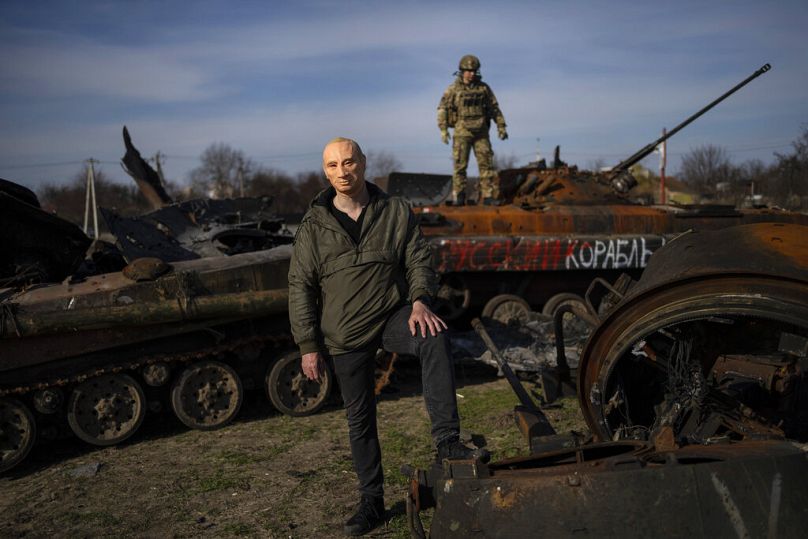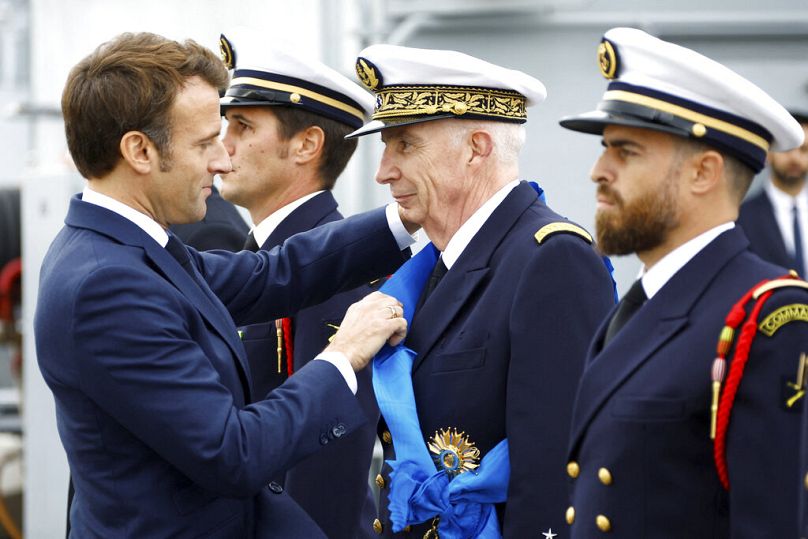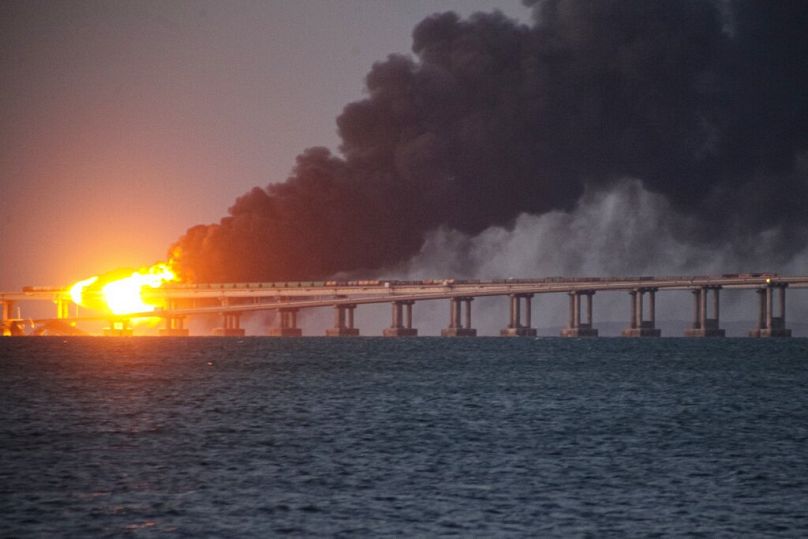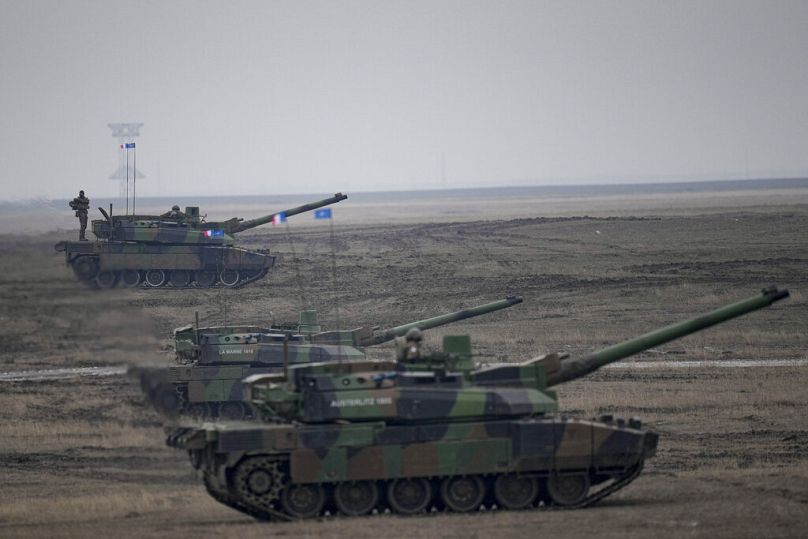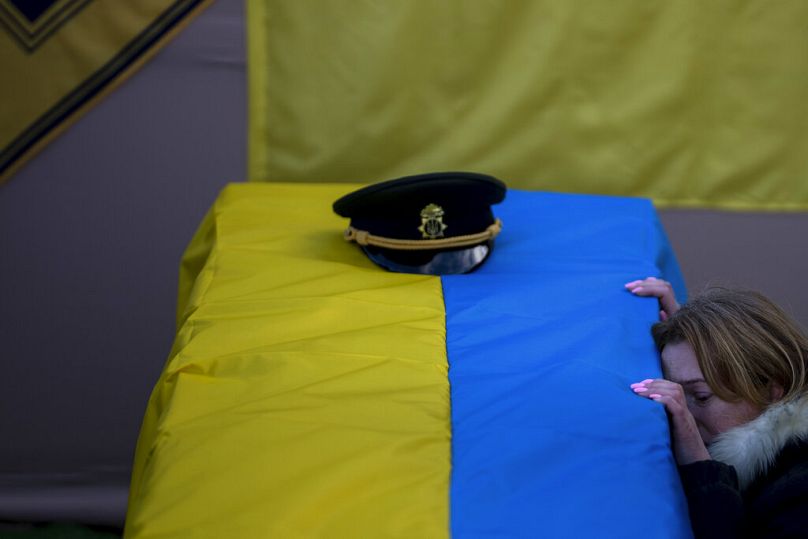Different approaches among NATO countries have led to friction between the allies and hampered Kyiv in resisting Moscow's aggression. As long as that is the case, Ukrainians are paying the price with their lives, Marius Ghincea argues.
The recent trans-Atlantic debacle regarding the transfer of tanks to Ukraine — especially German-made Leopards — brought to the fore the fact that despite the immense threat posed by Russia to European security, there are still deep fractures within NATO.
 ADVERTISEMENT
ADVERTISEMENT
 ADVERTISEMENT
ADVERTISEMENT
The German government finally approved the transfer of the coveted Leopard tanks to Ukraine, but only following weeks of intense political pressure on German Chancellor Olaf Scholz.
For that to happen, US President Joe Biden's administration had to relent and send some of its fuel-inefficient yet powerful Abrams tanks to Ukraine.
But why the discord?
Different theories of victory, different views on Europe's future
To make sense of the periodic disagreements on Ukraine within the bloc, we need to look at how different NATO powers conceive the endpoint of Russia's war.
By my count, there are at least three broad “theories of victory” shared by different parts of the alliance.
That is, different countries within the alliance have different ideas about what winning means in Ukraine and what concrete actions are needed to achieve that endpoint.
Poland and the Baltic countries share the same maximalist theory of victory with Ukraine. That is, they define victory in terms of the complete liberation of the Ukrainian territory illegally occupied by Russia after the bloodiest day of the Maidan Revolution in Kyiv on 20 February 2014, including the Crimean peninsula and the regions in the Donbas.
As part of this endgame, the maximalist view also includes the collapse of the President Vladimir Putin-led regime at the Kremlin -- and ideally, even the collapse of the Russian state.
To achieve this definition of victory, the countries that subscribe to this view push for increased material support for Ukraine with increasingly sophisticated weapons.
Besides that, this group of countries advocate for an increasingly bellicose treatment of Russia, refusal of any compromise or negotiations, and intensifying international pressure on Putin’s regime.
Option two: Frustrating Russia enough to sit down for peace talks
In turn, Germany and France advance a different theory of victory.
They define it as a negotiated settlement following talks on an equal footing between Kyiv and Moscow.
They believe Russia cannot be completely obliterated without running the risk of a dangerous — or even nuclear — escalation.
Simply put, it would not be advisable to have a nuclear power in chaos, provoking spillover effects and global instability.
As such, they aim to arm Ukraine with sufficient weapons to frustrate any Russian military initiative but not to eliminate potential incentives to negotiate.
An ideal situation would be a military impasse on the front, which may force the two sides to shift to diplomacy to solve their disagreements.
Looking at the German policy from this perspective, Scholz’s reticence to supply Ukraine with tanks makes much more sense.
Bloodying Moscow's nose — yet letting it have Crimea
Finally, the UK and the US seem to have a slightly different theory of victory than the one prioritised by Kyiv.
London and Washington seem to be happy to give the Kremlin a bloody nose and will support Ukraine in reclaiming its territory illegally occupied since the beginning of the full-scale invasion in February 2022, including the self-proclaimed separatist states in the Donbas — but not Crimea.
Eroding Russia’s conventional capabilities, without providing any incentives to Putin to escalate militarily by using nuclear weapons, fits neatly within Washington's "strategic competition" framework.
As such, the US is providing substantial military assistance to Ukraine in a gradual, planned, and well-targeted manner, seeking to slowly chip away at Russia’s conventional capabilities without leading to an escalatory reaction.
To this end, the White House has publicly stated that it will support Ukraine to reclaim only its territory lost in 2022, evading questions regarding Crimea.
Ukrainians will pay the cost of any disagreements with their lives
The contrasting theories of victory employed by different groups of NATO countries lead to increased friction between allies.
In turn, this has hampered the entire war effort, as different countries seek to advance different paths to end the war according to their preferred definition of victory.
Countries are reluctant to engage in initiatives or to support mobilisation actions that go against their preferred route in supporting Kyiv and ending the war.
The power differentials between the US and the UK, the western Europeans, and the northern-and-eastern Europeans play a critical role.
Of the three, the latter have been surprisingly assertive and successful in pushing their views.
Relying on the media influence that Ukraine still enjoys worldwide and the domestic disagreements within Germany, they have been able to force Scholz’s hand.
However, all this squabbling comes with a cost that is counted in Ukrainian lives.
As the war evolves, the contrasting theories of victory held by different NATO members will lead to recurrent conflicts that will not end up helping improve Europe’s security.
A unified agreement on what victory entails means solidified resolve to defeat Russia
Instead, what is needed is a trans-Atlantic compromise over what should be achieved in Ukraine, with the Kyiv leadership at the table.
While Kyiv’s aims are legitimate and worthwhile, Ukrainians must also consider the implications and worries of their partners, on which they so desperately depend.
Together, these countries need to set aside their diplo-talk and agree on a straightforward view of what would comprise victory that can be shared by everyone.
To do otherwise risks undermining Ukraine’s and Europe’s success and future security.
The continued military support for Ukraine is beyond question, yet negotiating a shared theory of victory must not be taboo.
If there is to be trust between partners, and if we are to overcome current squabbles, European, North American, and Ukrainian leaders must discuss frankly where the war is going, what is to be achieved, and how it should be achieved.
Marius Ghincea is a PhD Researcher at the European University Institute in Fiesole and a Research Fellow at the Hertie School in Berlin. His research agenda focuses on the domestic politics of foreign policy, especially in the United States and Germany.
At Euronews, we believe all views matter. Contact us at view@euronews.com to send pitches or submissions and be part of the conversation.











